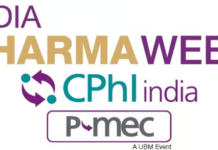Bengaluru, September 26, 2022: Out of the total 4,000 asymptomatic people who underwent screening for heart calcium score in the last 12 months at NURA, about 1 in 5 (20%) were found with build-up of calcified plaque in their heart. Out of these, around 150 people (4%) had a 90% chance of heart attack, with an Agatston score of over 400, but were completely unaware of it. They were saved in the nick of time as their condition could be diagnosed with preventive health check-up.
Said Dr. Tausif Ahmed Thangalvadi, Medical Director at NURA, a collaboration between Fujifilm Healthcare and Dr Kutty’s Healthcare offering AI-enabled imaging in Bengaluru: “A coronary calcium scan can detect and measure calcium-containing plaque in the arteries. This plaque can grow and lead to narrowing of coronary arteries and increased risk of heart attack. Plaque in arteries is more common in men than women, and its incidence increases with age. Heart Calcium score uses low-dose CT scan to take cross-sections of the blood vessels of the heart to look for build-up of calcified plaques made of fats, cholesterol, calcium and other substances in the blood. This calcium is different from the calcium in the bones and is not related to calcium in our diet. The Heart Calcium Score helps us identify a person at risk of a heart attack even before signs and symptoms develop. At Nura, we use the internationally validated Agatston Score to predict severity of the plaque deposits.”
Talking about how Heart Calcium Store is different from other heart tests, Dr. Tausif Ahmed Thangalvadi said: “An ECG or Echo can pick up a heart attack only after it occurs. A normal ECG or Echo does not rule out the risk or presence of atherosclerotic plaques. A treadmill test measures the ability of the heart to increase its blood flow under physical stress. It can pick up the risk of a heart attack only if the coronary artery narrowing reaches a critical stage. Today, the world over, Heart Calcium Score is recommended for screening cardiac risk in asymptomatic people, and an angiogram in those who are symptomatic. A Heart Calcium Score can be done once a year to pick up any coronary artery disease at an early stage. People with a zero score can also be reassured about their heart and avoid unnecessary medications.”
As per the WHO Global Health estimates 2016, nearly 11% of the population in India is suffering from coronary artery disease (heart disease). This means that 1 out of 10 Indians has heart disease, which is much higher than the world average. “Heart disease is the highest killer contributing to nearly 50% of all deaths in India. And this becomes of much more concern when we realize that Indians have heart disease at a younger age and with higher mortality. On average, Indians get a heart attack 10 years earlier or younger than the western population,” Dr. Tausif Ahmed Thangalvadi said.
“Those most susceptible to heart disease are people with a family history of heart and high cholesterol levels. As per the INTERHEART study, conventional risk factors contributing to increased incidence of heart disease in India are hypertension, diabetes mellitus, abnormal cholesterols levels, smoking, obesity, lack of physical activity, low fruits and vegetables intake, and psychosocial stress. All these risk factors are in a rapid increase phase in India and hence the increasing prevalence of heart disease at a younger age,” he said.
Corporate Comm India (CCI Newswire)






















